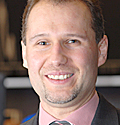Bonds: French bonds under pressure

Interest rates are falling in the US and Germany, but rising in France – in each case influenced by political decisions. The US labor market is considered key to interest rate policy. E.On is raising capital through new bonds.
29 August 2025. FRANKFURT (Börse Frankfurt). US President Donald Trump has put a temporary stop to the run on US government bonds triggered by Fed Chairman Jerome Powell last Friday. In his speech at the Federal Reserve conference in Jackson Hole, Powell opened the door to an interest rate cut in September, citing risks to the labor market. US bond prices rose significantly, with the yield on ten-year Treasuries falling from 4.35 to 4.20 percent. Elmar Völker attributes the subsequent counter-movement to the US president's dismissal of Fed board member Lisa Cook. “With this unprecedented move, Trump is escalating his efforts to undermine the independence of the US Federal Reserve. This has reignited investors' fears in this regard,” explains the LBBW analyst.
Will the Fed cut interest rates soon?
Whether and to what extent the Fed will ease interest rates at its meeting on September 17 is likely to depend on the August labor market report due out this Friday (5). Völker describes this date as “one of the last potential stumbling blocks on the road to an interest rate cut.” However, in order to give the monetary authorities serious cause for concern, “a comprehensive relativization of July's weak signals” would be necessary. The bond specialist cites a job increase of well above 100,000 as a concrete prerequisite, but himself expects growth of only between 50,000 and 75,000 jobs. This would make an interest rate cut even more likely.
Fed Governor Christopher Waller, nominated by Trump and considered a possible successor to Powell, advocates a reduction in US key interest rates by 0.25 percentage points in September and expects further cuts in the next three to six months. A larger interest rate cut would also be conceivable if the labor market report shows significant weakness and inflation remains low. Waller had already advocated easing monetary policy at the Fed's most recent meeting in July in order to promote employment.
French bonds with risk premiums
New concerns about political stability in France caused turmoil on the European bond markets after Prime Minister Bayrou scheduled a vote of confidence on his austerity plans for September 8. The yield on ten-year French bonds (OAT) rose from a peak of 3.41 percent to 3.54 percent, but fell slightly to 3.49 percent at the end of the week. New safe-haven inflows drove German government bond prices into positive territory after a weak start to the week. The yield on ten-year bonds stood at 2.71 percent on Friday morning, down from 2.76 percent the previous week. Martin Hartmann of Commerzbank fears that the yield premium on French government bonds will reach further highs in the coming week: “As uncertainty remains high if the vote of confidence fails, spreads could rise even further.”
Declining beer consumption weighs on performance
In the corporate bond segment, the Karlsberg Brauerei GmbH bond maturing in 2029 (NO0013168005) came under pressure in the middle of the week after the company was forced to lower its annual forecast. “Investors responded by selling,” explains Gregor Daniel of Walter Ludwig Wertpapierhandelsbank. The price fell from 108 percent to below 106 percent.
The bond issued by LR Health & Beauty SE (NO0013149658), which matures in 2028, also suffered significant losses, with its price plummeting from 93 percent to 86 percent. Daniel cites a report that the management board intends to negotiate changes to the bond terms with creditors as a precautionary measure. The background to this is the company's potentially excessive net debt on a specified date at the end of September.

Gregor Daniel
E.On with two new bonds
Daniel, on the other hand, sees good demand for a bond from MTU XS2887896574 maturing in 2031, which currently yields 3.2 percent. “This bond is popular and is constantly being bought.” With the end of the summer holidays, Raffaele Antacido of ICF Bank sees new momentum on the primary market: companies are using it to raise fresh capital. He cites bonds from Air France (FR0014012HT4) and EON (XS3171594636 and XS3171591889) as examples.
By Thomas Koch, 29 August 2025, © Deutsche Börse
About the Author
Thomas Koch is a CEFA investment analyst, investment specialist for structured products, and certified certificate advisor. Since early 2006, he has been covering capital market events as a freelance journalist.
Feedback and questions to redaktion@deutsche-boerse.com





